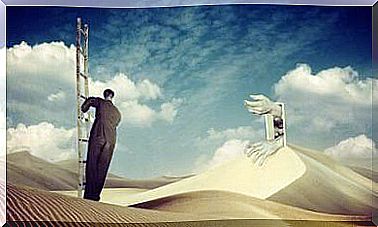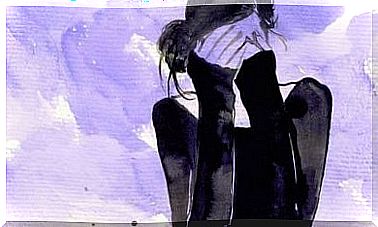Who Does Not Understand His Fear Does Not Know His Opponent

Fears, often unfounded, about what may go wrong or do us some harm in the future, are one of the main causes of our life dissatisfaction. All people hide some fears that lead us to behave in an avoidant way in some crucial situations in our life. Thus, there is no greater opponent than oneself.
Fears are born from past experiences. In the process of socialization from childhood to maturity we acquire the fears of the closest and most influential people, even if it is unconsciously. If these people are references for us, their fears point us to dangers and unpleasant situations to avoid.
If we drag our fears for a long time and allow them to grow and occupy a wide space in our day-to-day lives, we are allowing them to become a recurring filter, among the many that we use to process reality. So that this does not happen, it is positive to know where these fears come from and act. Faced with fear: action and commitment.

When the motivation is fear
Fear is a primitive emotion that has resulted in the survival of the human race. Like any emotion, adjusted has its functional value, but misadjusted it is one of the most damaging emotions. If fear takes control of our life, it will be directed by avoidance, anxiety and irrational behaviors, which can lead to major depression disorders.
When we act out of fear, we do not enjoy, we only seek to quell the discomfort that it produces, to slow down its growth. There are many kinds of fears. An individual may have a fear of specific elements such as ghosts, dogs, water, pigeons, etc., but there are also other more diffuse fears, such as the fear of talking to strangers, starting something new, speaking in public, flying.
The list of fears can be infinite and a fear can have different meanings and manifestations for each individual , although the strategies used in consultation to overcome them are similar or affect the common part of all fears. To confront our fears, we need to relax, calm down and observe objectively, contrasting with the events that, if they have occurred, so that our reaction is appropriate and positive. If you can’t kill the monsters, train them.

Identify your fear and you will know your opponent
The first step to overcome our fears is to understand their origin. Meditation and self-evaluation mark the way to understand ourselves and know our true opponent.
Where do our fears come from? Fear can come from something we have been told, from something we have observed, or from previous experiences. Once we know the cause, we can start working to overcome it. To identify it, it is good that we examine the beliefs that support it.
The beliefs that lead us to fear are excessive thoughts that are activated without there being a real threat. In these situations there is a distortion in the fear system. There is a distortion in our emotion caused by our beliefs.

Our fears are the enemies that paralyze us, those that are only in our minds and that prevent us from carrying out necessary behaviors in our day to day without these reasons being actually disabling from the outside. Identifying and confronting them will make us see that most of these fears are excessive and are only covering our insecurities.
When we are in a moment that is not to our liking and we want to flee, the best we can do is act. To achieve this, let’s take a trip inside ourselves, without losing sight of external references. First, let’s analyze whether our fears are real or imagined. In the case that they are real, a good initiative consists of observing the situation in which we find ourselves, generating alternatives for action and making a decision. As long as they are imaginary, you can use what we have said throughout the article!









